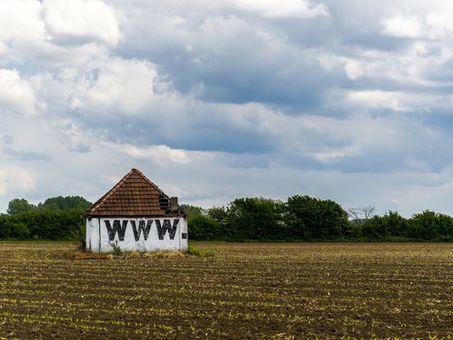Don’t limit high-speed broadband to big cities
Internet service providers are stepping up their game, building the infrastructure necessary to provide high-speed Internet services in communities across the country. This is great, especially for big cities that have the incentives (read: population) needed to encourage private providers to upgrad

Internet service providers are stepping up their game, building the infrastructure necessary to provide high-speed Internet services in communities across the country. This is great, especially for big cities that have the incentives (read: population) needed to encourage private providers to upgrade broadband networks and provide customers with an essential utility of the 21st century.
But it doesn’t work out so well for rural towns and small communities. Because of population size and infrastructure limitations, many residents are subjected to slow, out-of-date services or are left without access to commercial providers altogether. With high-speed broadband playing a larger and larger role in growing a community’s economy and improving its residents’ ways of life, this is neither acceptable nor fair.
While it makes sense that private Internet service providers are unwilling to invest in and build out communities that will not be profitable — as is the point of capitalism and free markets — rural towns shouldn’t have to go without. If only there were other sources or potential providers out there that would have the interests of small-town residents in mind.
There are, in fact. Municipalities in many rural areas have taken matters into their own hands. Through the creation of publicly funded and operated broadband systems, full communities have access to high-speed Internet service outside the city limits. For example, in my hometown of Tullahoma, a city of just 18,000, this resulted in a growth in jobs at twice the rate of communities of equal size throughout the entire state in the past year.
Unfortunately, public broadband networks are impeded by restrictive state laws that limit the power municipals have in providing services. In Tennessee, a 1999 law prohibits municipalities that operate broadband networks from providing service to anyone outside of the boundaries of their electrical footprint. This means that people in rural towns and small communities are still without high-speed Internet.
They’re without educational and employment opportunities, improved modern health care, enhanced public safety or better-quality government services, among other benefits.
The Federal Communications Commission is about to help rural towns and small communities reach their full potential by letting their residents have the choice of access to high-speed, affordable broadband. This is a welcome step. But there is more to be done.
As a senator representing seven rural counties and a resident of a small community myself, I am speaking out for all of those who are being held hostage to 20th-century technology. Let us grow our economies, improve our governments’ performance and create jobs for our communities. Let us have Internet choice(s).
Sen. Janice Bowling, R-Tullahoma, represents the 16th District of Tennessee in the General Assembly.
Source: www.tennessean.com
This is the real issue that will be determined by the Federal Communications Commission on Thursday, February 26: Whether cities may restrict the operations of municipal, and public-private, broadband networks. Great commentary by a Republican from Tennessee on the subject.
See on Scoop.it – BroadbandPolicy








